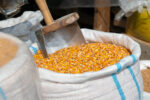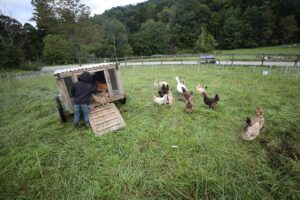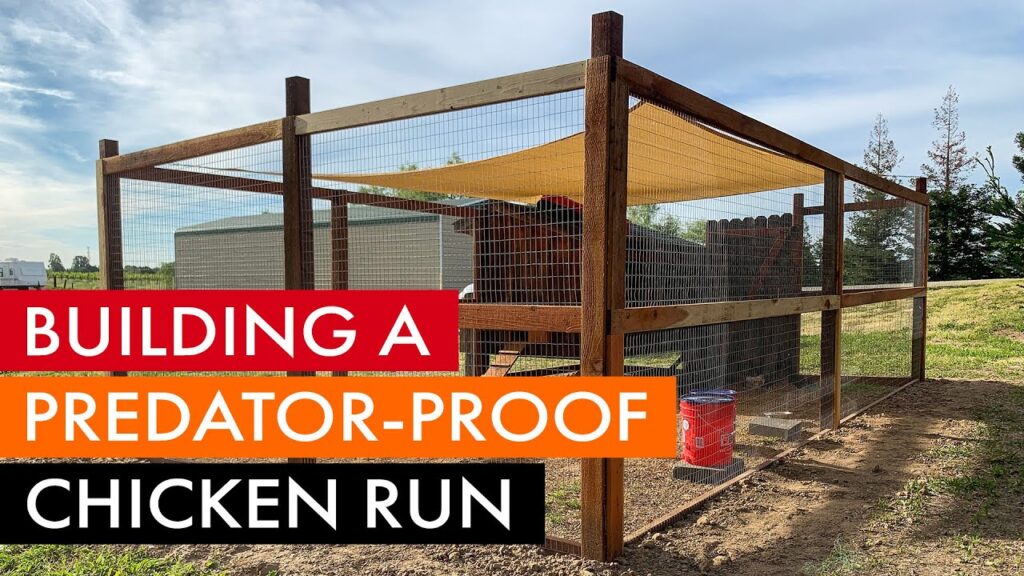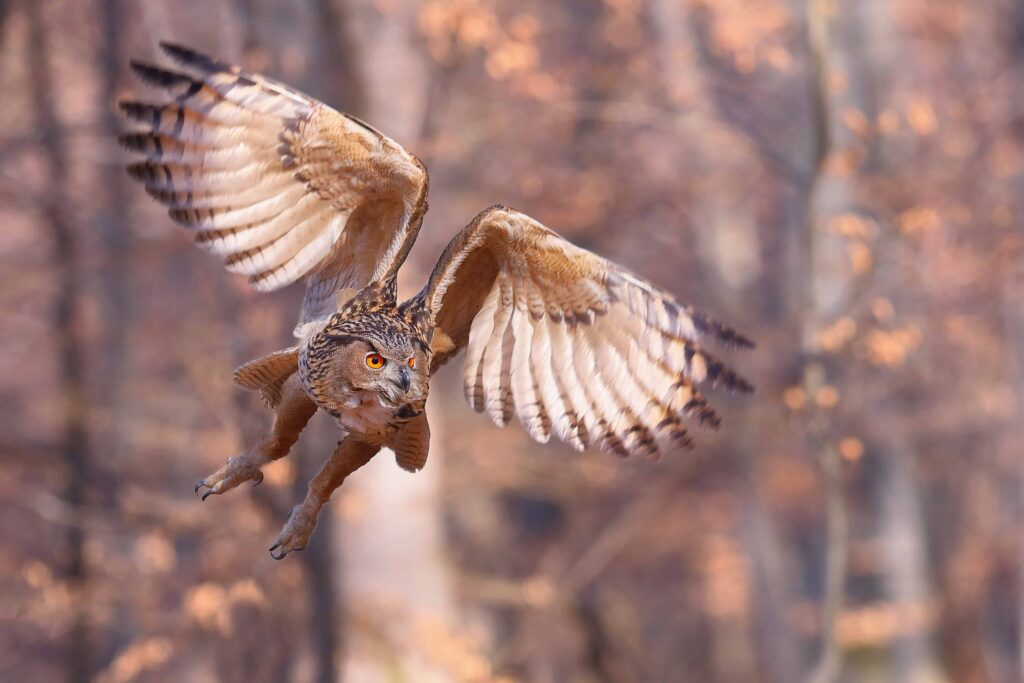Last updated on August 5, 2025
The heart-sinking dread of approaching your chicken coop after a restless night, fearing what you might find – a broken latch, scattered feathers, or worse. When it comes to the relentless and incredibly clever chicken predator, the raccoon stands alone as a master of infiltration. But this guide is your definitive, step-by-step blueprint to winning the fight. Forged from hands-on experience and meticulous research, we’ll show you how to stop raccoons from getting in coop and build a true raccoon-proof fortress for your flock, providing the best chicken predator protection and finally reclaiming your peace of mind.
While this guide focuses specifically on raccoons, remember they are just one of many threats. For a comprehensive understanding of all potential dangers, be sure to read our main guide on Chicken Predator Protection.
Why Raccoons Are a Unique and Formidable Threat
Understanding your adversary is the first step to victory. Raccoons aren’t just opportunistic scavengers; they are intelligent, adaptable, and incredibly persistent.



- Dexterous “Hands”: Unlike many other predators, raccoons possess remarkably dexterous front paws that function much like human hands. They can twist, pull, unlatch, and manipulate objects with surprising precision, making simple latches ineffective. As Sheldon Owen, PhD, wildlife extension specialist at West Virginia University, states, “Raccoons are excellent climbers and can grasp and manipulate objects with their feet. But they can be destructive. If a raccoon finds a one-inch crack in siding, for example, it will dig, chew and figure out how to pull off boards to expand the hole for a new den.” Source: Southern Living
- Intelligence and Memory: Raccoons are intelligent problem-solvers. They learn from their attempts to breach a coop and remember weak points. A latch that foils them once might not work a week later, as they adapt their tactics.
- Strength and Persistence: For their size, raccoons are surprisingly strong. They will persistently test every inch of a coop for weaknesses, gnawing at wood, prying at wires, and pushing against barriers until they find a way in.
5 Ways To Protect Chickens From Raccoons
Building a truly raccoon-proof chicken coop requires meticulous attention to detail and a commitment to robust materials. This section outlines the core fortifications essential for total security.
1. Hardware Cloth is Your Best Friend
Forget chicken wire. It’s designed to keep chickens in, not predators out. A determined raccoon can tear through chicken wire in minutes. For ultimate security, hardware cloth is non-negotiable.
- Material and Gauge: Use welded hardware cloth with a small gauge, ideally 1/2-inch or 1/4-inch mesh. The smaller the mesh, the harder it is for a raccoon to reach through or chew.
- Installation: It’s crucial how to install hardware cloth. Use heavy-duty staples (at least 1/2-inch or longer) every 2-3 inches, or better yet, use screws with washers for maximum security. Staples alone can be pried loose by persistent paws.
- Cover Every Opening: Every single opening, no matter how small, must be covered. This includes vents, windows, and any gaps under the eaves or around doors. Raccoons can squeeze through surprisingly tight spaces. As Kathy, “The Chicken Chick” from Rethink Rural, advises, “Chicken wire is meant to contain chickens, not to exclude predators. A hungry raccoon can defeat chicken wire as easily as opening an envelope.” Source: Rethink Rural
- Can raccoons get through wood? Yes, raccoons can gnaw through weak or rotting wood, especially if there’s an existing crack or soft spot. They will also exploit loose boards.
- Will raccoons chew through plastic? Absolutely. Plastic is no match for a determined raccoon’s teeth and claws. Never rely on plastic containers or flimsy plastic mesh for coop security.
2. The Three Levels of Coop Latches
A single, simple latch is an open invitation for a raccoon. You need a multi-step system to truly deter them.
- Good (Minimum Security): A Simple Barrel Bolt A basic sliding barrel bolt is better than a hook-and-eye, but a determined raccoon might still jiggle it open with enough time and persistence. It’s a starting point, but not a solution on its own.
- Better (Recommended Security): Barrel Bolt Plus Secondary Clip This is where you start to see real security. Combine a sturdy barrel bolt with a secondary carabiner clip (also known as a snap hook). This two-step process requires two distinct motions to open, making it significantly harder for a raccoon to defeat. This is often considered the best coop locks for raccoons for most backyard setups.
- Best (Maximum Security): Spring-Loaded, Two-Step Gate Latch For the gold standard in raccoon-proof chicken coop security, invest in a heavy-duty, spring-loaded, two-step gate latch. These typically require lifting and pulling simultaneously, a complex motion that raccoons struggle to replicate. As a popular chicken keeping TikTok creator, ChickenSchmidtFarms, warns, “A raccoon can undo any latch that a 3 year old child can unlatch. Choose your latches and locks wisely!” Source: ChickenSchmidtFarms TikTok
3. Securing the Base: Dig-Proofing Your Foundation
Raccoons are not just master climbers; they are also skilled diggers. Your coop’s foundation must be just as secure as its walls.



- Solid Flooring: A dirt floor or a coop sitting directly on the ground is an easy target. Install a solid floor (concrete or heavy-duty plywood).
- Predator Apron: For dirt floors, create a predator apron. This involves burying hardware cloth at least 12-18 inches deep and extending it outwards from the coop’s perimeter. Raccoons instinctively dig down, not out, so they’ll hit the apron and be deterred.
4. Securing the Roof: Overhead Protection
Raccoons are excellent climbers and will test the roof for entry points.
- Solid Roof: Ensure your coop roof is solid and has no gaps or weak spots that can be pried open.
- Covered Run: If your run has an open top, cover it completely with hardware cloth to prevent aerial attacks and raccoons from climbing over and dropping in.
5. Eliminating Attractants: Food and Shelter
Beyond physical barriers, managing your environment can significantly reduce the appeal of your coop to raccoons.
- Eliminate Food Sources: Do not leave out pet food, birdseed, or uncovered garbage. Store chicken feed in secure, airtight, metal containers. Galvanized steel bins with tight-fitting lids are widely regarded as rat-proof and raccoon-proof because these rodents cannot chew through metal.
- Remove Hiding Spots: Keep the area around your coop clear of debris, tall grass, and dense bushes where raccoons might hide or build dens.
Deterrents: Your First Line of Defense
While physical barriers are paramount, deterrents can provide an extra layer of protection, especially as a first line of defense to scare off curious raccoons before they even reach your coop.
What Works: Motion-Activated Deterrents
These work because they provide a sudden, unexpected stimulus that startles and disorients raccoons, making them perceive the area as unsafe. What are raccoons naturally afraid of? They are naturally wary of sudden, unexpected changes in their environment, especially bright lights and loud noises.




- Motion-Activated Sprinklers: Devices that spray water when motion is detected can be highly effective. Raccoons dislike unexpected sprays of water.
- Motion-Activated Lights: Bright, sudden lights, especially those designed for wildlife deterrence like Nite Guard Solar lights, can scare off nocturnal visitors.
- Motion-Activated Alarms: A sudden loud noise can be effective, though you might get tired of false alarms.
What is Less Reliable: Common Misconceptions
Many common deterrents are less effective against intelligent and persistent raccoons.
- Smells (Ammonia, Cayenne Pepper): What scent will keep raccoons away? While some strong smells might deter them initially, raccoons often get used to them or simply walk around the treated areas. There is no single scent that provides reliable, long-term deterrence.
- Sound (Radios, Ultrasonic Devices): Raccoons quickly learn that constant or repetitive sounds are not a real threat and will ignore them. Ultrasonic devices often have limited range and effectiveness against determined animals.
Dealing with Active Raccoon Threats: Trapping and Removal
If a raccoon has already discovered your coop and is actively causing problems, direct intervention may be necessary.
- How to catch a raccoon killing chickens: The most common method is live trapping. Use a sturdy, humane live trap baited with something appealing to raccoons, like marshmallows, sweet fruits, or even a piece of chicken. Place the trap near the entry point they are using.
- Raccoon Trap Considerations: When using a raccoon trap, check it frequently. Once a raccoon is caught, you must immediately contact your local animal control or wildlife agency for guidance on removal and relocation, as laws vary by region. Never attempt to handle a trapped raccoon directly, as they can be aggressive and carry diseases like rabies.
Conclusion: Peace of Mind Through Preparation
Defeating a predator as intelligent and persistent as a raccoon isn’t about luck; it’s about preparation and consistent vigilance. By understanding their tactics and implementing these robust strategies, you can transform your chicken coop into a true fortress.
Focus on the non-negotiables: hardware cloth on all openings, two-step latches on all doors, a secure foundation (solid floor or predator apron), a secure roof, and eliminating attractants. Consistent efforts to how to keep predators away from chicken coop will pay off. An automatic door is a great way to ensure the coop is locked down tight every night, even if you forget. You can see our top recommendations here: Top 7 Automated Poultry Feeders.




By taking these essential steps, you can be confident that your flock is secure, allowing you—and your chickens—to rest easy, knowing you’ve built them a true fortress.
Quick FAQs on Raccoon-Proof Chicken Coop
Signs of raccoon killing chickens?
Look for missing heads, dismembered bodies, or multiple dead birds with only certain parts eaten (like crops). Often, the scene will show signs of a struggle near entry points.
How do raccoons kill chickens?
Raccoons often kill chickens by reaching through wire mesh or small openings to grab and dismember them, frequently targeting the head and crop. They can also enter the coop and attack multiple birds.
Why do raccoons kill chickens and not eat them?
Raccoons are known for “sport killing” or “surplus killing.” This instinctual behavior means they may kill more prey than they can immediately eat, often leaving behind multiple carcasses with only certain parts (like heads or crops) consumed.
What’s the best wire for raccoon-proofing?
Always use hardware cloth (1/2-inch or 1/4-inch mesh), not chicken wire, for maximum security.
Can raccoons open latches?
Yes, their dexterous paws allow them to open simple latches. Always use two-step latches or carabiner clips.
How deep should I bury my fence?
Bury hardware cloth 12-18 inches deep as a predator apron to deter digging.
What material is raccoon proof?
Heavy-gauge hardware cloth (1/2-inch or 1/4-inch welded wire), solid wood (without cracks or rot), concrete, and metal are considered raccoon-proof when properly installed.



How to keep raccoons away from chickens at night?
Ensure your coop has an automatic door that closes at dusk. Use two-step latches and surround the coop with hardware cloth on all sides, including a buried predator apron.
Do motion lights scare raccoons?
Motion-activated lights and sprinklers can effectively startle and deter raccoons.
Should I leave chicken feed out overnight?
No, always store feed in rat-proof and raccoon-proof metal containers to avoid attracting them.
What scent will keep raccoons away?
While some strong smells might deter them initially, raccoons often get used to them or simply walk around the treated areas. There is no single scent that provides reliable, long-term deterrence.
What will raccoons not walk on?
Raccoons are adaptable, but they generally dislike walking on unstable or prickly surfaces. However, there’s no single material they will reliably avoid walking on if motivated by food. Motion-activated deterrents are more effective at creating an uncomfortable environment.
For those who prefer a visual guide, this video provides a practical demonstration of many of the techniques discussed here for building a raccoon-proof chicken coop: Making A Raccoon Proof Chicken Coop.









